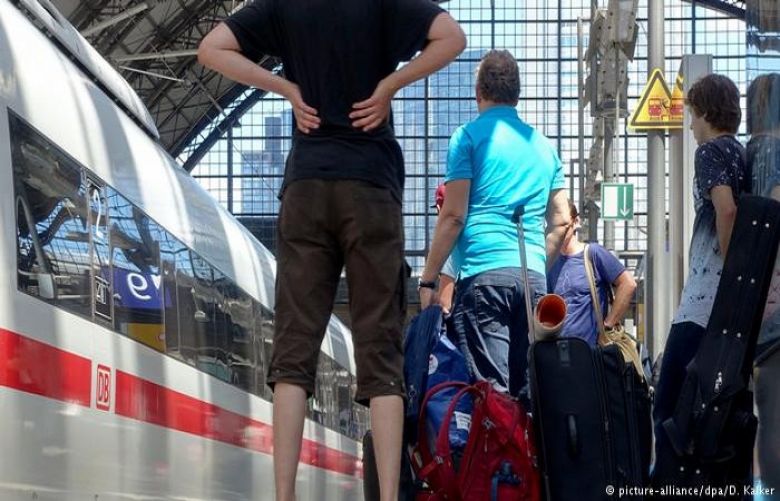If punctuality is a German virtue, Deutsche Bahn seems to be showing a lack of character. In 2018, one in four trains run by Germany's state-owned rail operator was late. And it is costing the company dearly.
The amount of compensation Germany's biggest rail operator paid for train delays increased from €34.6 million ($39.2 million) in 2017 to more than €53 million last year.
Some 2.7 million Deutsche Bahn (DB) passengers claimed compensation and received an average payout of nearly €20, a company spokesperson told the DPA news agency on Monday.
In 2017, just under 2 million passengers claimed compensation and received an average payout of €19.
One in four DB trains were late in 2018. The company blamed extreme weather conditions such as storms, lightning strikes and an unusually dry summer.
A fire aboard an intercity train and trade union strikes in December also led to long delays in that month.
DB boss Rüdiger Grube unveiled the new train in Berlin. The ICE is one of Germany's best-known brands. DB says surveys indicate 100 percent name recognition for its flagship high-speed rail service. The ICE accounts for only around 8-10 percent of sales, but it lends prestige to DB's brand.
Any DB passenger who arrives at least an hour late can apply to receive a quarter of the train ticket in compensation. If they arrive more than two hours late, they can receive half of the ticket price.
State-owned DB is not the only train company that allows customers to apply for compensation according to the German system. But it pays out the lion's share of compensation each year because it operates nearly all intercity routes, which also tend to experience the most delays.
The European Parliament has called for changing the compensation system. Lawmakers say passengers should receive half of the ticket price after an hour's delay, three-quarters after a delay of 1 1/2 hours delay and the full ticket price if they arrive more than two hours late.
AFP







